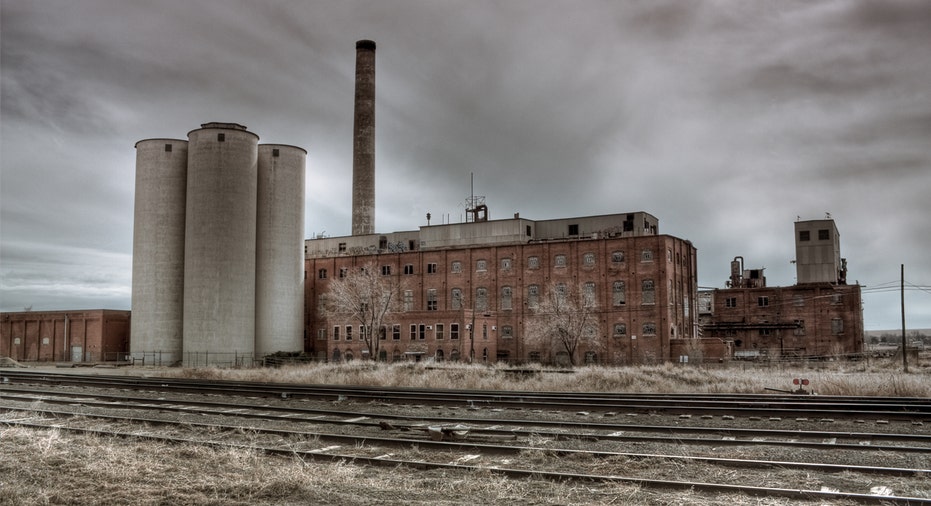Is America Bad for Business?

President-elect Donald Trump was elected on his promise to make America great again. The businessman already has his hands full more than a month before he will even officially be sworn into office.
Last week, amid much fanfare, Trump struck a deal with air-conditioning manufacturer Carrier to keep its factory in the United States, saving 1,100 jobs at the company’s Indiana plant.
But, just down the road, chain belt producer Rexnord announced plans to ship 300 of its Indiana-based jobs to Mexico, provoking the ire of the President-elect.
Rexnord of Indiana is moving to Mexico and rather viciously firing all of its 300 workers. This is happening all over our country. No more!
— Donald J. Trump (@realDonaldTrump) December 3, 2016
Meanwhile, Ford (NYSE:F) will stick by its decision to move some of its small-car production to Mexico, the automaker’s CEO Mark Fields said late Friday. Trump famously criticized this move, which Fields has defended by claiming there will be no net loss of jobs since Ford will be substituting production of other cars into the plant.
Trump promised throughout his campaign to create an environment more favorable to U.S. companies. While the United States is one of the most vibrant global economies, what exactly makes America so bad for business?
The corporate tax rate
The United States has one of the highest corporate tax rates in the world. The headline corporate tax rate is currently 35%, meaning companies have to pay a 35% tax on their income or capital.
“In seeking out locations, companies look at a variety of factors, one of the main ones being government tax,” Simon Lester, trade policy analyst with the Cato Institute’s Herbert A. Stifel Center for Trade Policy Studies, told FOXBusiness.com. “Governments with better policies are most likely to attract investment, of both domestic and foreign-owned companies.”
One of Trump’s proposed economic policies is to slash the corporate tax rate to a more globally competitive 15%, part of his initiative to foster a more inviting environment for business investment.
The cost of labor
“It’s all about labor costs/costs of production,” Jason Rotman, managing partner at Lido Isle Advisors tells FOXBusiness.com.
Certainly, companies often cite cheap labor as a reason to move production offshore. When they can pay employees less, they can afford to lower the price points on their products. Countries like China, Taiwan and Vietnam offer employment at a fraction of the cost of U.S. labor. America has the eleventh highest minimum wage, according to the World Economic Forum’s most recent analysis of data from 2013. Unsurprisingly, Mexico has one of the lowest.
While Trump’s stance on the minimum wage has been unclear, advocates across the country have been fighting to raise the minimum rate to $15 per hour.
Regulations
Trump has been lauded by Wall Street for his pledged commitment to deregulating the economy; including rolling back rules such as Dodd-Frank and those that increase overtime pay for low-wage workers. Some labor regulations introduced by President Obama, such as minimum wage stipulations and paid sick leave for workers hired by federal contractors, were enacted through executive order, and thus, can be undone with the stroke of a pen by the Trump administration.
The idea behind eliminating such regulations is that it will be simpler, and cheaper, to operate within the country.
Trump’s policies so far
Trump the businessman reared his head, doing his own rendition of the good cop, bad cop routine with two Indiana-based companies. While Carrier got a deal filled with incentives to stay in the United States, Rexnord caused Trump to develop a new punishment for companies that relocate manufacturing bases outside of the country: a 35% tariff on goods traded back to the United States.
Trump warned companies against making a “very expensive mistake” through a series of tweets on Sunday, but some wonder whether it is the President-elect who would be making a mistake by implementing a “retribution” tax on these companies.
“Taxing corporations for importing back to the United States will increase costs and disincentivize investment. Multinational corporations need the ability to produce and sell goods in a free flowing manner,” said Chad Morganlander, portfolio manager at Washington Cross Advisors.
The economic damage inflicted by such a tariff would go even deeper, said Cato’s Lester.
“Such a tariff would be harmful to consumers and would create a great deal of uncertainty for future investment,” he said.
When it comes to policies aimed at keeping companies’ operations in America, Lester believes Trump may need to rework his approach.
“Some of Trump’s general tax and regulatory proposals may help to attract investment. However, his efforts to prevent specific companies from opening factories abroad is likely to harm the U.S. economy more than help,” he warned.



















